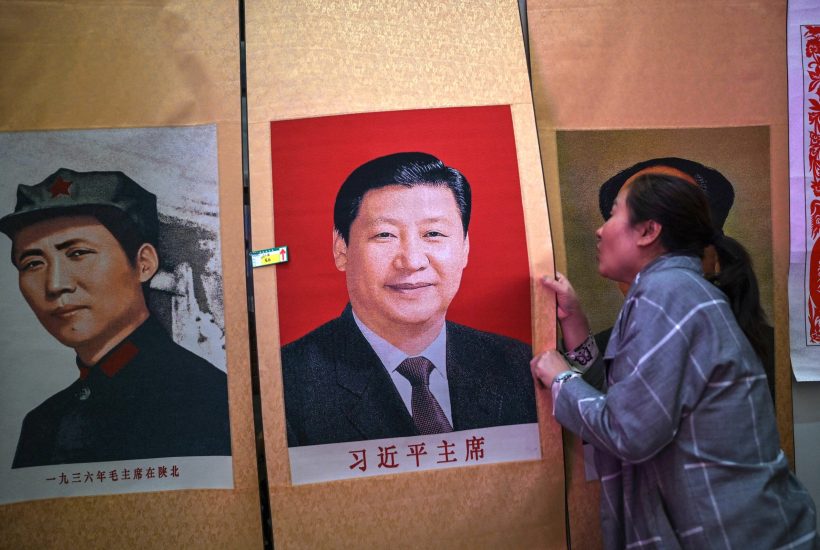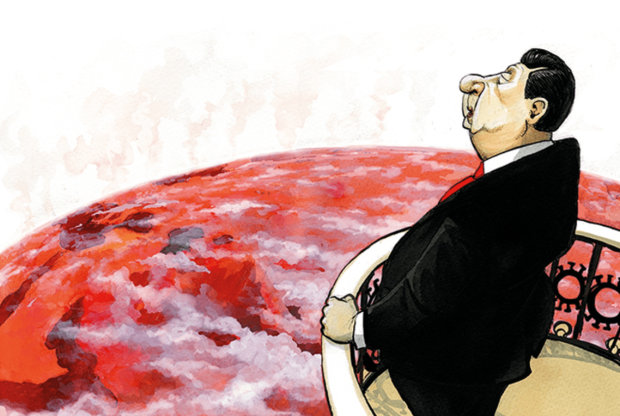Zhou Xiaoxuan was in tears when she emerged from the Beijing court around midnight on Tuesday. ‘I’m really sorry there wasn’t a better result,’ she said in a video clip shared by supporters after the court threw out a sexual harassment case against one of the country’s most famous television hosts.
Zhou claimed she had been forcibly groped and kissed while working as an intern at state broadcaster CCTV in 2014. The case was seen as a test of China’s proclaimed determination to clamp down on abuse, and it galvanized the country’s fledgling #MeToo movement. A court statement said Zhou had provided insufficient evidence, though she told supporters outside the court that the judge had refused to admit some evidence, including video footage taken from outside the room where the alleged assault occurred.
Her video message was soon deleted by internet censors, and she now faces a defamation lawsuit brought by the man she accused. Judging by recent cases, this stands a far greater chance of success. China only recently passed legislation defining sexual harassment and courts have set a very high bar for a successful prosecution.
Zhou’s case comes just days after police dropped charges against a manager from the tech giant Alibaba, who was accused of sexually assaulting one of his subordinates while on a business trip. The investigation reportedly confirmed the details of the assault provided by the victim, but prosecutors ruled that even though her manager committed ‘forced indecency’, it was not a prosecutable offence.
The Alibaba scandal created a firestorm online in China after the victim, frustrated that the company would not take her seriously, shared details of her ordeal on the internet, where it quickly went viral. Alibaba sacked the accused manager, but in a blow to those trying to expose abusive behaviour, the company has reportedly sacked ten employees for sharing the accuser’s account online. The e-commerce giant said they had violated its company policies.
Following the Alibaba case and the arrest last month of Kris Wu, a Chinese-Canadian pop star, on suspicion of rape, sexual harassment became one of the most discussed topics on Chinese social media. As did the widespread culture of boorish drinking and entertaining, sexual discrimination and casual harassment in the Chinese workplace. It all raised tantalising questions about whether China was facing its #MeToo moment, a prospect I wrote about in the magazine last month.
It seems that such hopes were premature. The Communist party is currently targeting big tech companies as well as entertainers deemed to be ‘vulgar influencers’. The CCP wants to bring the likes of Alibaba down a peg or two, while the National Radio and Television Administration wants to encourage programmes that promote what it calls traditional, revolutionary or ‘advanced socialist’ culture.
The scandals involving Alibaba and high profile entertainers are useful to the CCP. It is a cynical policy, but not an altogether surprising one. As the Zhou court case reveals, real change remains elusive. After a brief interlude following the Alibaba scandal, discussion of gender issues is once again being targeted online — scores of feminist and LGBT accounts have been deleted from the internet. To Xi Jinping and the grey, paranoid middle-aged men who comprise the party leadership, women standing up for their rights is seen first and foremost as a threat to the much-vaunted stability of party rule.
<//>
Got something to add? Join the discussion and comment below.
Get 10 issues for just $10
Subscribe to The Spectator Australia today for the next 10 magazine issues, plus full online access, for just $10.




















Comments
Don't miss out
Join the conversation with other Spectator Australia readers. Subscribe to leave a comment.
SUBSCRIBEAlready a subscriber? Log in